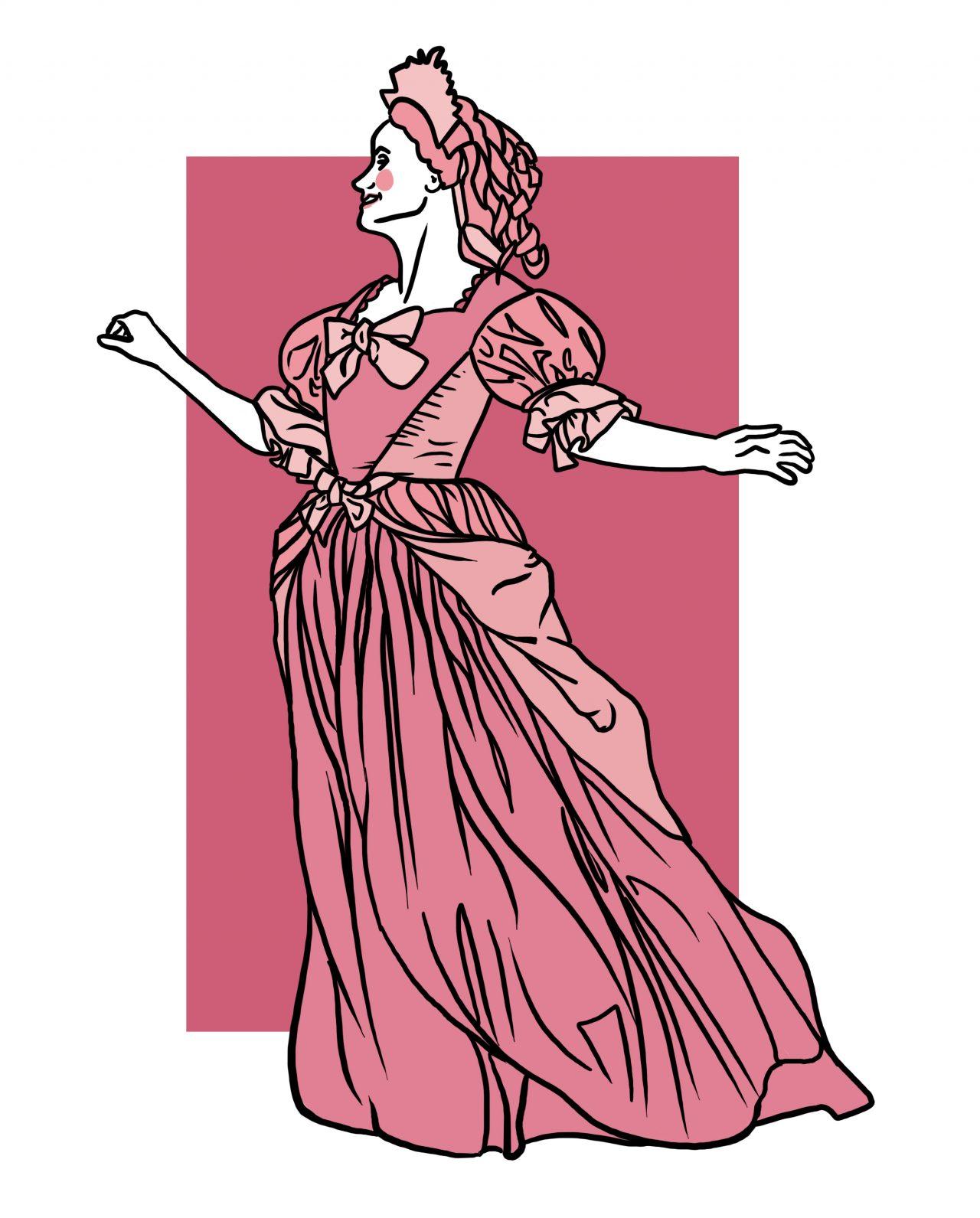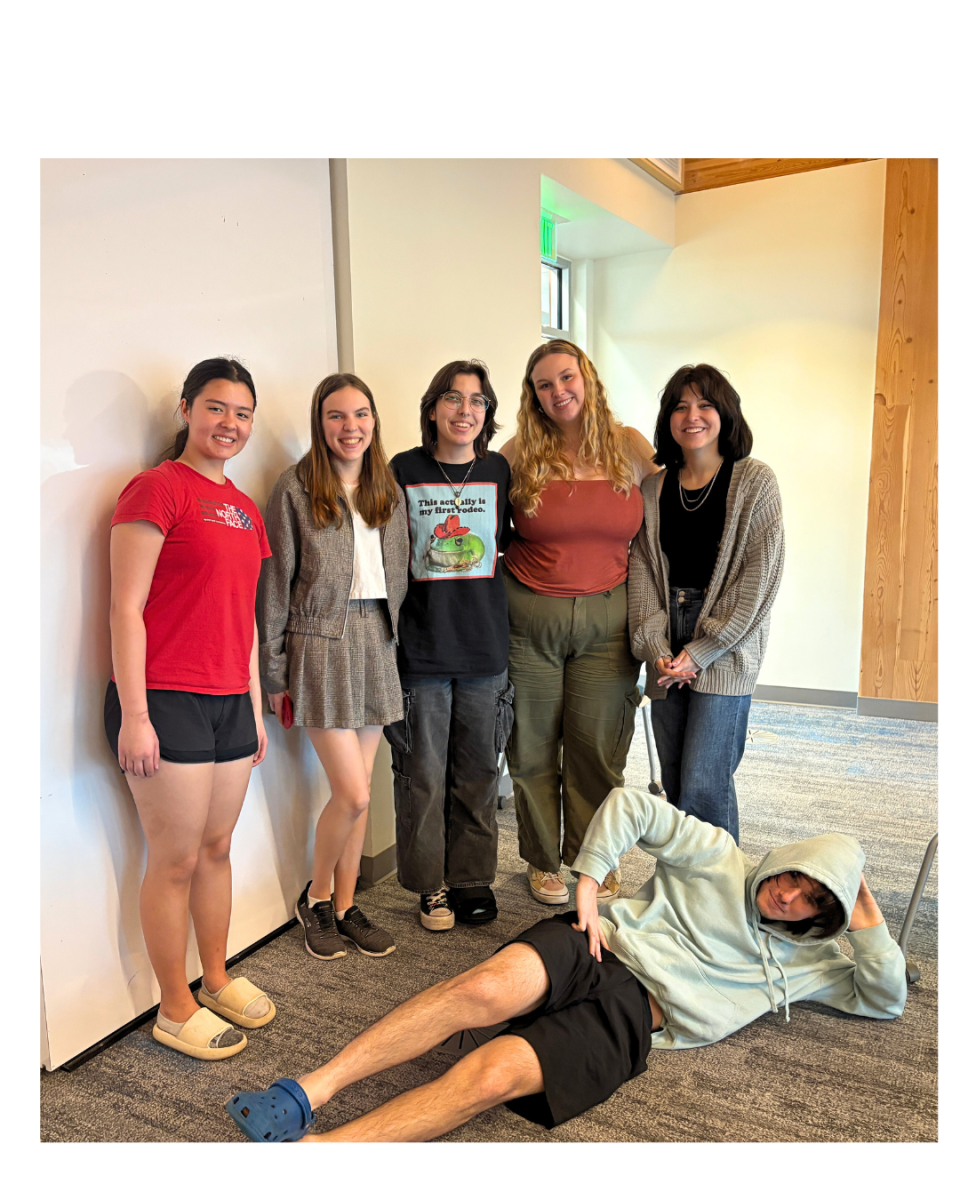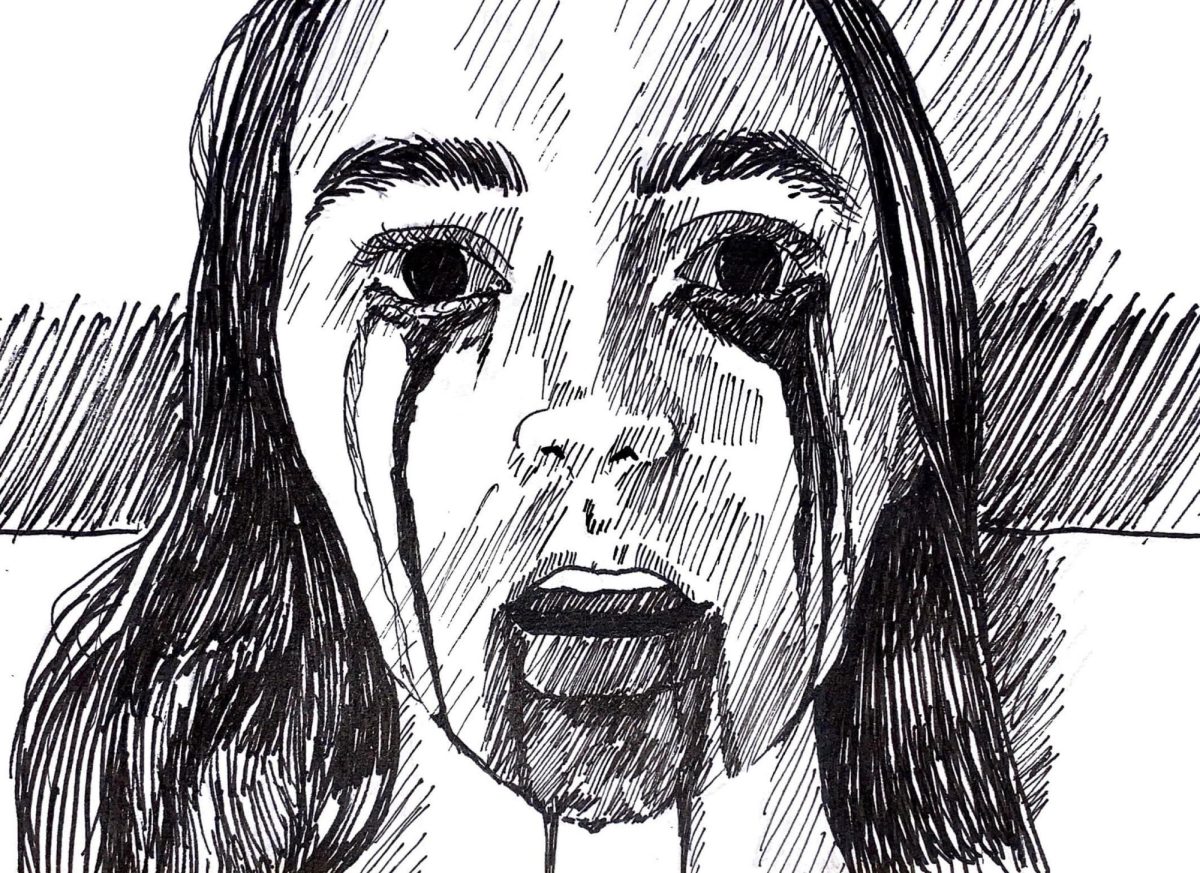Illustration by Andrea Nehbut
Every semester, Trinity University’s Dept. of Theatre puts on two mainstage productions.This semester, the department is putting on shows that branch out from the usual productions that they put on.
Associate Professor Stacey Connelly from the Department of theatre is directing Molière’s “Tartuffe,” a comedic period piece.While the play’s script and historical context present a few challenges for its actors, Connelly is confident that “Tartuffe” will be a show the Trinity community won’t want to miss.
“Tartuffe” is set in 17th-century France and, according to Connelly, is one of the most famous plays in the western canon.Inspired by the commedia dell’arte productions he saw as a child, Molière was inspired to create his own comedies based around a set of stock characters.
This specific play follows a wealthy family headed by patriarch Orgon, who becomes obsessed with helping a con man who is masquerading as a religious leader, Tartuffe.
Numerous comedic events follow that involve Orgon getting progressively more and more taken with Tartuffe as those around him try to open his eyes to the trickery he is being persuaded to believe.
Though on the surface “Tartuffe” appears like just another comedy with little substance, in actuality the play offers a commentary on French life during the time period and the strength of the monarchy, as well as acting as a cautionary tale.
“Whether it’s in business or government or in public life, there are always folks out there looking to shake folks down and, depending on what realm of public life it’s in, it can be very dangerous and ruinous to people’s lives and incomes and so on,” Connelly said.
The play also acts as a great educational opportunity for those involved. The actors must become familiar with the historical context during which they will be acting.
“France at this time was a center of art and culture and tremendous power because of Louis the XIV,” Connelly said. “It’s a really specific world that requires training in movement and how to wear specific costumes.”
“Tartuffe” also brings additional challenges due to its script written in verse, meaning there is a specific rhyming and rhythmic pattern to the lines.
“One of the biggest challenges will be taking a text that is written in verse that we tend to think of as being very formal and making it alive,” Connelly said.
Though the play may be important in the theatre world, it hit a roadblock at Trinity when not enough people showed up for auditions.
Dramaturges Kathleen Arbogast, a junior, and Rafaela-Seraphina Brenner, a senior, are confident this was more so due to a change in the normal auditioning process than anything else.
“Normally we do two main stage shows every semester and the auditions for those are combined, so when you audition you’re auditioning for both but are typically only cast for one,” Arbogast said. “This semester was different though because “Cities of Memory” had a different audition process, so we had a bit of a smaller pool.”
“Also, ‘The Mystery of Edwin Drood’ last semester left a lot of people really burned out because it was a really big full-on dancing musical, so some actors are taking a break this semester,” Brenner said.
Despite these initial obstacles, Tartuffe now has a set cast and is beginning its production.
Those involved plan to put on a show full of laughs and fun for both the audience and the cast.
Both having done dramaturgical work in the past, Brenner and Arbogast look forward to continuing their research and actually getting to share it with the cast and others.
“I’m excited to start working with the cast and with Stacy and work on the display and program notes as we get into production,” Brenner said.
“I’m a religion major and there are a lot of connections in the play to Catholicism through religious satire and comments on religion in general, so personally I find it really interesting,” Arbogast said.
“Tartuffe” will be coming to Trinity theaters April 17–19 and 22–25.







